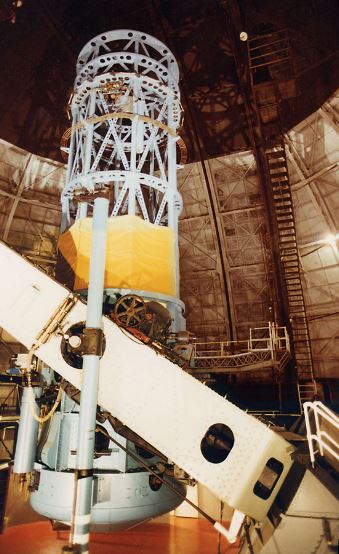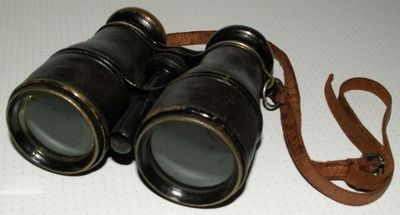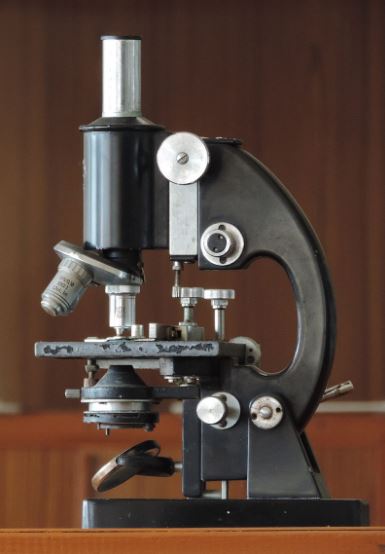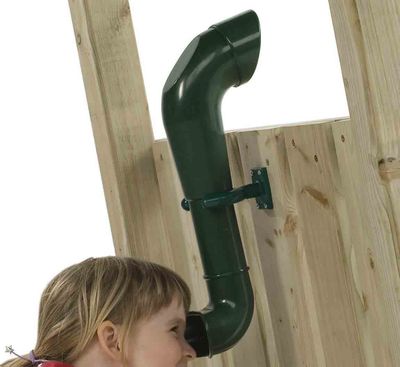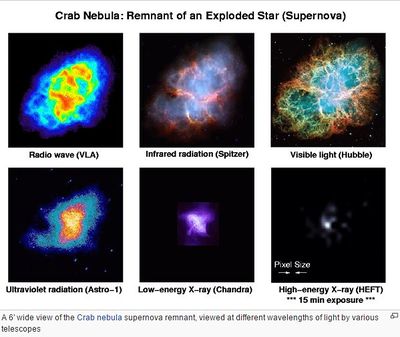Difference between revisions of "Optical Instruments"
(Created page with "{{subst:Science-Content}}") |
|||
| (29 intermediate revisions by 6 users not shown) | |||
| Line 1: | Line 1: | ||
| + | <div style="width:150px;border:none; border-radius:10px;box-shadow: 5px 5px 5px #888888; background:#ffffff; vertical-align:top; text-align:center; padding:5px;"> | ||
| + | ''[http://karnatakaeducation.org.in/KOER/index.php/ದ್ಯುತಿ_ಉಪಕರಣಗಳು ಕನ್ನಡದಲ್ಲಿ ನೋಡಿ]''</div> | ||
| + | |||
<!-- This portal was created using subst:box portal skeleton --> | <!-- This portal was created using subst:box portal skeleton --> | ||
<!-- BANNER ACROSS TOP OF PAGE --> | <!-- BANNER ACROSS TOP OF PAGE --> | ||
| Line 4: | Line 7: | ||
|- | |- | ||
|style="width:10%; border:none; border-radius:5px;box-shadow: 5px 5px 5px #888888; background:#f9f9ff; vertical-align:middle; text-align:center; "| | |style="width:10%; border:none; border-radius:5px;box-shadow: 5px 5px 5px #888888; background:#f9f9ff; vertical-align:middle; text-align:center; "| | ||
| − | [http:// | + | [http://karnatakaeducation.org.in/KOER/en/index.php/Science:_History The Story of Science] |
| − | |style=" width:10%; border:none; border-radius:5px;box-shadow: 5px 5px 5px #888888; background:#f9f9ff; vertical-align:middle; text-align:center; "|[http:// | + | |style=" width:10%; border:none; border-radius:5px;box-shadow: 5px 5px 5px #888888; background:#f9f9ff; vertical-align:middle; text-align:center; "|[http://karnatakaeducation.org.in/KOER/en/index.php/Science:_Philosophy Philosophy of Science] |
|style=" width:10%; border:none; border-radius:5px;box-shadow: 5px 5px 5px #888888; background:#f9f9ff; vertical-align:middle; text-align:center; "| | |style=" width:10%; border:none; border-radius:5px;box-shadow: 5px 5px 5px #888888; background:#f9f9ff; vertical-align:middle; text-align:center; "| | ||
| − | [http:// | + | [http://karnatakaeducation.org.in/KOER/en/index.php/Science:_Pedagogy Teaching of Science] |
|style=" width:10%; border:none; border-radius:5px;box-shadow: 5px 5px 5px #888888; background:#f9f9ff; vertical-align:middle; text-align:center; "| | |style=" width:10%; border:none; border-radius:5px;box-shadow: 5px 5px 5px #888888; background:#f9f9ff; vertical-align:middle; text-align:center; "| | ||
| − | [http:// | + | [http://karnatakaeducation.org.in/KOER/en/index.php/Science:_Curriculum_and_Syllabus Curriculum and Syllabus] |
|style=" width:10%; border:none; border-radius:5px;box-shadow: 5px 5px 5px #888888; background:#f9f9ff; vertical-align:middle; text-align:center; "| | |style=" width:10%; border:none; border-radius:5px;box-shadow: 5px 5px 5px #888888; background:#f9f9ff; vertical-align:middle; text-align:center; "| | ||
| − | [http:// | + | [http://karnatakaeducation.org.in/KOER/en/index.php/Science:_Topics Topics in School Science] |
|style=" width:10%; border:none; border-radius:5px;box-shadow: 5px 5px 5px #888888; background:#f9f9ff; vertical-align:middle; text-align:center; "| | |style=" width:10%; border:none; border-radius:5px;box-shadow: 5px 5px 5px #888888; background:#f9f9ff; vertical-align:middle; text-align:center; "| | ||
| − | [http:// | + | [http://karnatakaeducation.org.in/KOER/en/index.php/Textbooks#Science_-_Textbooks Textbooks] |
|style=" width:10%; border:none; border-radius:5px;box-shadow: 5px 5px 5px #888888; background:#f9f9ff; vertical-align:middle; text-align:center; "| | |style=" width:10%; border:none; border-radius:5px;box-shadow: 5px 5px 5px #888888; background:#f9f9ff; vertical-align:middle; text-align:center; "| | ||
| − | [http:// | + | [http://karnatakaeducation.org.in/KOER/en/index.php/Science:_Question_Papers Question Bank] |
|} | |} | ||
While creating a resource page, please click here for a resource creation [http://karnatakaeducation.org.in/KOER/en/index.php/Resource_Creation_Checklist '''checklist'''] | While creating a resource page, please click here for a resource creation [http://karnatakaeducation.org.in/KOER/en/index.php/Resource_Creation_Checklist '''checklist'''] | ||
= Concept Map = | = Concept Map = | ||
| + | [[File:Optical_Instruments.mm]] | ||
__FORCETOC__ | __FORCETOC__ | ||
| + | |||
= Textbook = | = Textbook = | ||
To add textbook links, please follow these instructions to: | To add textbook links, please follow these instructions to: | ||
| Line 25: | Line 30: | ||
= Additional information = | = Additional information = | ||
| + | Show the children pictures of various Optical Instruments such as: | ||
| + | #Telescope | ||
| + | [[File:Telescope.JPG|400px]] | ||
| + | #Binoculars | ||
| + | [[File:Binocoulars.JPG|400px]] | ||
| + | #Microscope | ||
| + | [[File:Microscope.JPG|400px]] | ||
| + | # Periscope | ||
| + | [[File:periscope2.jpg|400px]] | ||
| + | # Fascinating image of the crab nebula | ||
| + | [[File:Image of the crab nebula from different telescopes.JPG|400px]] | ||
| + | |||
| + | |||
==Useful websites== | ==Useful websites== | ||
| + | [http://en.wikipedia.org/wiki/Optical_instrument Wikipedia for Optical Instruments]<br> | ||
| + | [http://physics.bu.edu/~duffy/py106/Instruments.html Use of an Optical Instruments] | ||
| + | [https://en.wikipedia.org/wiki/Binoculars Binoculars] | ||
| + | [https://en.wikipedia.org/wiki/Microscope Microscope] | ||
| + | [https://en.wikipedia.org/wiki/Telescope Telescope] | ||
| + | |||
==Reference Books== | ==Reference Books== | ||
| − | + | NCERT Class XII Physics Textbook, Optics Chapter | |
= Teaching Outlines = | = Teaching Outlines = | ||
| − | ==Concept #== | + | ==Concept #Introduction to Optical Instruments== |
===Learning objectives=== | ===Learning objectives=== | ||
| + | #Define optics | ||
| + | #Explain how a compound microscope uses convex lenses to make an enlarged image of a tiny object. | ||
| + | #To generate ray diagrams to predict the positions and size of images in optical systems | ||
| + | #To understand how optical instrument work | ||
| + | #To understand the operation of reflecting telescope | ||
| + | #Uses of optical instruments | ||
| + | |||
===Notes for teachers=== | ===Notes for teachers=== | ||
| − | ' | + | Optics is nothing if we don't include experimental instruments. Optics is a very good hands on experience subject which is only possible properly with instruments at hand. In case the instruments are not available then day to day examples such as spectacles, camera, magnifying glass. Even the example of the eye will be of great help as it will help in building an interdisciplinary approach in Physics. |
| − | ===Activity No # === | + | |
| + | ===Activity No # Human Eye === | ||
{| style="height:10px; float:right; align:center;" | {| style="height:10px; float:right; align:center;" | ||
|<div style="width:150px;border:none; border-radius:10px;box-shadow: 5px 5px 5px #888888; background:#f5f5f5; vertical-align:top; text-align:center; padding:5px;"> | |<div style="width:150px;border:none; border-radius:10px;box-shadow: 5px 5px 5px #888888; background:#f5f5f5; vertical-align:top; text-align:center; padding:5px;"> | ||
| − | ''[http:// | + | ''[http://karnatakaeducation.org.in/?q=node/305 Click to Comment]''</div> |
|} | |} | ||
* '''Estimated Time''' | * '''Estimated Time''' | ||
* '''Materials/ Resources needed''' | * '''Materials/ Resources needed''' | ||
* '''Prerequisites/Instructions, if any''' | * '''Prerequisites/Instructions, if any''' | ||
| − | * '''Multimedia resources''' | + | * '''Multimedia resources'''<br> |
| + | {{#widget:YouTube|id=wcNwKmH9-IM}}<br> | ||
* '''Website interactives/ links/ simulations''' | * '''Website interactives/ links/ simulations''' | ||
* '''Process (How to do the activity)''' | * '''Process (How to do the activity)''' | ||
| Line 50: | Line 83: | ||
* '''Question Corner''' | * '''Question Corner''' | ||
| − | ===Activity No # === | + | ===Activity No # Microscope === |
{| style="height:10px; float:right; align:center;" | {| style="height:10px; float:right; align:center;" | ||
|<div style="width:150px;border:none; border-radius:10px;box-shadow: 5px 5px 5px #888888; background:#f5f5f5; vertical-align:top; text-align:center; padding:5px;"> | |<div style="width:150px;border:none; border-radius:10px;box-shadow: 5px 5px 5px #888888; background:#f5f5f5; vertical-align:top; text-align:center; padding:5px;"> | ||
| − | ''[http:// | + | ''[http://karnatakaeducation.org.in/?q=node/305 Click to Comment]''</div> |
|} | |} | ||
* '''Estimated Time''' | * '''Estimated Time''' | ||
* '''Materials/ Resources needed''' | * '''Materials/ Resources needed''' | ||
* '''Prerequisites/Instructions, if any''' | * '''Prerequisites/Instructions, if any''' | ||
| − | * '''Multimedia resources''' | + | * '''Multimedia resources'''<br> |
| + | {{#widget:YouTube|id=kcyF4kLKQTQ}}<br> | ||
* '''Website interactives/ links/ simulations''' | * '''Website interactives/ links/ simulations''' | ||
* '''Process (How to do the activity)''' | * '''Process (How to do the activity)''' | ||
| Line 65: | Line 99: | ||
* '''Question Corner''' | * '''Question Corner''' | ||
| + | ==Concept # Types and Uses of Optical Instruments== | ||
| + | ===Learning objectives=== | ||
| + | # Identify the use of convex lens in day-to-day life | ||
| + | # Tabulate the differences between a simple and compound microscope | ||
| + | # Draw a ray diagram to show the working principal of telescope | ||
| + | # State the uses of Optical Instruments | ||
| − | |||
| − | |||
===Notes for teachers=== | ===Notes for teachers=== | ||
| − | ' | + | Optics is nothing if we don't include experimental instruments. Optics is a very good hands on experience subject which is only possible properly with instruments at hand. In case the instruments are not available then day to day examples such as spectacles, camera, magnifying glass. Even the example of structure of the eye will be of great help as it will help in building an interdisciplinary approach in Physics. |
| − | ===Activity No # === | + | |
| + | ===Activity No # Telescope=== | ||
{| style="height:10px; float:right; align:center;" | {| style="height:10px; float:right; align:center;" | ||
|<div style="width:150px;border:none; border-radius:10px;box-shadow: 5px 5px 5px #888888; background:#f5f5f5; vertical-align:top; text-align:center; padding:5px;"> | |<div style="width:150px;border:none; border-radius:10px;box-shadow: 5px 5px 5px #888888; background:#f5f5f5; vertical-align:top; text-align:center; padding:5px;"> | ||
| − | ''[http:// | + | ''[http://karnatakaeducation.org.in/?q=node/305 Click to Comment]''</div> |
|} | |} | ||
* '''Estimated Time''' | * '''Estimated Time''' | ||
* '''Materials/ Resources needed''' | * '''Materials/ Resources needed''' | ||
* '''Prerequisites/Instructions, if any''' | * '''Prerequisites/Instructions, if any''' | ||
| − | * '''Multimedia resources''' | + | * '''Multimedia resources'''<br> |
| + | {{#widget:YouTube|id=cnvOGTwrC6M}}<br> | ||
* '''Website interactives/ links/ simulations''' | * '''Website interactives/ links/ simulations''' | ||
* '''Process (How to do the activity)''' | * '''Process (How to do the activity)''' | ||
| Line 85: | Line 125: | ||
* '''Question Corner''' | * '''Question Corner''' | ||
| − | + | ===Activity No # Camera=== | |
| − | ===Activity No # === | ||
{| style="height:10px; float:right; align:center;" | {| style="height:10px; float:right; align:center;" | ||
|<div style="width:150px;border:none; border-radius:10px;box-shadow: 5px 5px 5px #888888; background:#f5f5f5; vertical-align:top; text-align:center; padding:5px;"> | |<div style="width:150px;border:none; border-radius:10px;box-shadow: 5px 5px 5px #888888; background:#f5f5f5; vertical-align:top; text-align:center; padding:5px;"> | ||
| − | ''[http:// | + | ''[http://karnatakaeducation.org.in/?q=node/305 Click to Comment]''</div> |
|} | |} | ||
* '''Estimated Time''' | * '''Estimated Time''' | ||
* '''Materials/ Resources needed''' | * '''Materials/ Resources needed''' | ||
* '''Prerequisites/Instructions, if any''' | * '''Prerequisites/Instructions, if any''' | ||
| − | * '''Multimedia resources''' | + | * '''Multimedia resources'''<br> |
| + | {{#widget:YouTube|id=i-hEsFp20pY}}<br> | ||
* '''Website interactives/ links/ simulations''' | * '''Website interactives/ links/ simulations''' | ||
* '''Process (How to do the activity)''' | * '''Process (How to do the activity)''' | ||
| Line 102: | Line 142: | ||
= Project Ideas = | = Project Ideas = | ||
| + | # Projects about the types of lenses which can be identified easily and are used in day to day life | ||
| + | # To draw the ray diagram for the formation of image by a lens | ||
| + | # Identify the uses of lenses in day to day life: Divide the class into groups and list down all the ideas on a chart paper | ||
= Fun corner = | = Fun corner = | ||
Latest revision as of 12:59, 10 February 2017
| Philosophy of Science |
While creating a resource page, please click here for a resource creation checklist
Concept Map
Textbook
To add textbook links, please follow these instructions to: (Click to create the subpage)
Additional information
Show the children pictures of various Optical Instruments such as:
- Telescope
- Binoculars
- Microscope
- Periscope
- Fascinating image of the crab nebula
Useful websites
Wikipedia for Optical Instruments
Use of an Optical Instruments
Binoculars
Microscope
Telescope
Reference Books
NCERT Class XII Physics Textbook, Optics Chapter
Teaching Outlines
Concept #Introduction to Optical Instruments
Learning objectives
- Define optics
- Explain how a compound microscope uses convex lenses to make an enlarged image of a tiny object.
- To generate ray diagrams to predict the positions and size of images in optical systems
- To understand how optical instrument work
- To understand the operation of reflecting telescope
- Uses of optical instruments
Notes for teachers
Optics is nothing if we don't include experimental instruments. Optics is a very good hands on experience subject which is only possible properly with instruments at hand. In case the instruments are not available then day to day examples such as spectacles, camera, magnifying glass. Even the example of the eye will be of great help as it will help in building an interdisciplinary approach in Physics.
Activity No # Human Eye
- Estimated Time
- Materials/ Resources needed
- Prerequisites/Instructions, if any
- Multimedia resources
- Website interactives/ links/ simulations
- Process (How to do the activity)
- Developmental Questions (What discussion questions)
- Evaluation (Questions for assessment of the child)
- Question Corner
Activity No # Microscope
- Estimated Time
- Materials/ Resources needed
- Prerequisites/Instructions, if any
- Multimedia resources
- Website interactives/ links/ simulations
- Process (How to do the activity)
- Developmental Questions (What discussion questions)
- Evaluation (Questions for assessment of the child)
- Question Corner
Concept # Types and Uses of Optical Instruments
Learning objectives
- Identify the use of convex lens in day-to-day life
- Tabulate the differences between a simple and compound microscope
- Draw a ray diagram to show the working principal of telescope
- State the uses of Optical Instruments
Notes for teachers
Optics is nothing if we don't include experimental instruments. Optics is a very good hands on experience subject which is only possible properly with instruments at hand. In case the instruments are not available then day to day examples such as spectacles, camera, magnifying glass. Even the example of structure of the eye will be of great help as it will help in building an interdisciplinary approach in Physics.
Activity No # Telescope
- Estimated Time
- Materials/ Resources needed
- Prerequisites/Instructions, if any
- Multimedia resources
- Website interactives/ links/ simulations
- Process (How to do the activity)
- Developmental Questions (What discussion questions)
- Evaluation (Questions for assessment of the child)
- Question Corner
Activity No # Camera
- Estimated Time
- Materials/ Resources needed
- Prerequisites/Instructions, if any
- Multimedia resources
- Website interactives/ links/ simulations
- Process (How to do the activity)
- Developmental Questions (What discussion questions)
- Evaluation (Questions for assessment of the child)
- Question Corner
Project Ideas
- Projects about the types of lenses which can be identified easily and are used in day to day life
- To draw the ray diagram for the formation of image by a lens
- Identify the uses of lenses in day to day life: Divide the class into groups and list down all the ideas on a chart paper
Fun corner
Usage
Create a new page and type {{subst:Science-Content}} to use this template
